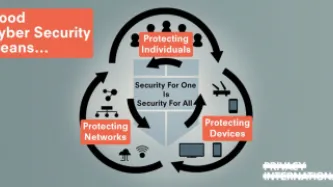Search
Content type: Examples
For a period between the end of October and November 3 2016 the heating and hot water systems in two buildings in the city of Lappeenranta, Finland were knocked out by a distributed denial of service attack designed to make the systems fail. The systems responded by repeatedly rebooting the main control circuit, which meant that the heating was never working - at a time when temperatures had already dropped below freezing. Specialists in building maintenance noted that companies often skimp on…
Content type: Examples
A 2017 research report found that the most vulnerable smartphone users are the ones whose devices are most open to fraud and harassment. Cheaper, low-end devices are less secure to begin with, and they are also less often replaced than their more expensive counterparts made by. Apple and Google. At any given time there are millions of Android devices that are open to known exploits. Worse, the poorer population that owns these phones are more likely to use them as their sole means of accessing…
Content type: Examples
Even after they move out, domestic abusers may retain control over their former residence via Internet of Things devices and the mobile phone apps that control them. Using those tools, abusers can confuse, intimidate, and spy upon their former spouses and partners. Lack of knowledge about how these technologies work means that those who complain are often not taken seriously. Even the victims themselves may believe it's all in their minds; lawyers are struggling to develop language to add to…
Content type: Examples
In 2017, a website run by the Jharkhand Directorate of Social Security leaked the personal details of over.1 million Aadhaar subscribers, most of them old age pensioners who had enabled automatic benefits payment into their bank accounts. Aadhaar is a 12-digit unique identification number issued to all Indian residents based on their biometric and demographic data. Both cyber security agencies and the Supreme Court have expressed concerns over its security,…
Content type: News & Analysis
There are three good reasons why security is so hard for NGOs. First, we are afraid to speak about meaningful security. Second, we focus on the wrong areas of security and in turn spend money and prioritise the wrong things. Third, we struggle to separate the world we want from the worlds we build within our own organisations. At PI we have failed and struggled with each of these for over 20 years. Out of exhaustion, we decided to do something about it: we are building an open framework, a…
Content type: News & Analysis
This is the story of Privacy International's journey to building more secure services. Data collection and administering sensitive data on the open web is risky, and PI had to learn this the hard way.
Many companies say that the privacy of their audiences is their top priority. But do they mean it? Do they invest in it? Doing security on tight budgets is incredibly hard. But it is the natural state of the non-profit sector. We learned this through challenging experiences.…





